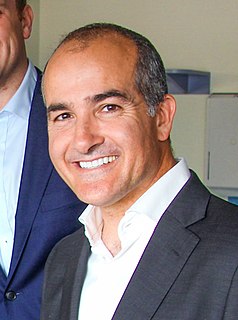A Quote by Frederick Lenz
It's very funny. People do not want to achieve liberation or be happy. This is the basic guideline they teach you in Spiritual Training School.
Related Quotes
I did one year of school and I was doing correspondence school, which was actually another happy accident. Correspondence school is basically home school, but you teach yourself instead of your parents teaching you. I found that to be one of the most important things in my life is that I learned how to teach myself things. I feel like that's something that schools should actually teach.
I was raised a Catholic as a boy and went to a Catholic boys' high school, a private school, and kind of drifted away, candidly, in my latter teen years. I consider myself deeply spiritual but not in an institutional, religious kind of a way. In Catholicism, we're surrounded by these images of martyrdom and doing penance and doing some suffering to achieve what you're trying to achieve. And I certainly embedded that in my psyche and I have lived that very effectively.
Why do all these people want [comedians] to be serious? The reason they want that is these are people who aren't funny. Anybody funny can be serious, but people who have no sense of humor, they can never be funny - and frankly, they're jealous. There's very few comic actors. Think about it. There aren't that many. It's hard because you have to be able to do both.
You frequently hear the phrase "culture eats strategy for lunch!" This is something that they don't teach you in school and few leaders appreciate. Cultural influences come at you from two different directions. There is the organizational culture that you must understand if you are to impact significant strategic initiatives. If the "people" are on board, you can achieve anything. Vice versa if they are not - you will not achieve anything.



































